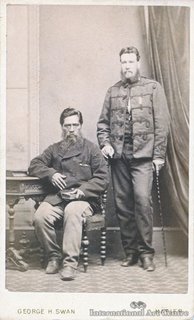Mihaka takes tiki tour in Taura Whiri waka
Te Taura Whiri chief executive Haami Piripi provided the rental car to Mr Mihaka to help in his unofficial role as a roving ambassador for Te Reo Maori.
Now that Mr Piripi's time as chief executive is drawing to an end, he's asked for the car to be returned.
Mr Mihaka says he wants proper recognition from the commission for his role, and he's backing that up with a sheaf of past correspondence from Mr Piripi.
It includes a claim that the 1980 case Mihaka versus Police established for the first time the right to use Maori in court, and led to wider official recognition of te reo.
Mr Mihaka says he sees it as a fight to get recognition for the service he has done for the Crown.
“And that in my opinion is the issue that needs to be resolved, whether the Crown acknowledges that I have done that or not. If I have done that, then they should be simply paying up and not arguing about my use of the car,” Mihaka says.
Mr Mihaka says he'll talk to the Maori language commission, when he gets back to Wellington.
MANA WAHINE SUPPORT ACKNOWLEDGED
A quiet revolution through the generations has ensured the future of Maori women is in capable hands.
That's the view of Maori Party co-leader Tartiana Turia, who was part of a panel at a Mana Wahine hui in Wellington yesterday.
The hui highlighted the successes of wahine Maori in business, commerce and law.
Mrs Turia says speakers like lawyer Annette Sykes and professional director June McCabe had a common story of being supported and mentored by their whanau, and especially their grandmothers.
“It's been in there for generations that our women have quietly led a revolution of supporting our young women to do very very well, and it’s starting to come to fruition today,” Turia says.
TURANGA HEALTH REACHES OUT TO ISLANDS
Gisborne-based Turanga Health is reaching out to its cousins from Te Moananui a Kiwa.
The Maori health provider is hosting a Pacific Island Health Day tomorrow for the growing number of island migrants in the region.
Tamariki Ora nurse Anita Vaotuua says as well as promoting healthy lifestyles, Turanga Health wants to get a better sense of the size of the community.
“There is no specific health services here in Gisborne for our Pacific Island group, and we believe that statistics that are available here in Tairawhiti aren’t accurate. The population of PI people here in Gisborne is larger than what the census tells us,” Vaotuua says.
28 BATTALION VETERAN GEORGE MCLEOD DIES
The Maori Battalion has lost another of its warriors.
George McLeod of Ngati Porou, one of the officers in the East Coast C Company, died in Tauranga yesterday aged 93.
Monty Soutter, who wrote a history of C Company, says Mr McLeod was part of the second Maori Battalion which went through the Italian campaign, and he was injured at the Battle of Cassino.
Mr Soutter says Mr McLeod went to war under another name.
He grew up and served as George Tamahori, he’s from a well known family on the East Coast, being the son of Pene Tamahori, and he only changed his name after the war when he came back, as he told me, to improve his chances at employment,” Monty Soutter says.
George McLeod has been taken to lie in state at Kennedy Bay on the Coromandel.
BILLION DOLLAR INFLATION WELCOMED BY CLAIMANT
A top of the South Island claimant has welcomed confirmation the billion dollar fiscal envelope for treaty settlements is based on the value of 1994 dollars.
Finance Minister Michael Cullen told a parliamentary select committee this week that while the Crown was no longer bound by the billion dollar cap, the need to maintain relativities between settlements means it is unlikely it the settlement process will cost much more than was envisaged a decade ago.
John Mitchell from Tainui Taranaki ki Te Tonga, one of the large natural groupings of Nelson Marlborough iwi, says he's pleased to hear Dr Cullen recognising that the value of a dollar shifts over time.
He says the news needs to filter through to the officials who are setting the terms for negotiation.
“This issue has been raised in preliminary discussions with some of the government employees with whom we are eventually going to have to sit down and negotiate, and I am not convinced this issue is properly understood at that level. We got the strong feeling they are still operating on a one and seven zeros in today's dollar terms,” Mitchell says.
TE ATIAWA REMEMBERS AILA TAYLOR CONTRIBUTION
Taranaki-based iwi Te Atiawa today received $8 million in fisheries assets as their share of the Maori fisheries settlement.
Te Ohu Kaimoana Trust chairperson Shane Jones says there was some comment by the elders at Waitara Marae about the iwi getting its fisheries assets before its land claim is settled, and he was challenged in his role as a Labour list MP to get some movement there.
Mr Jones says there was also acknowledgement of the contribution of the late Aila Taylor to the fisheries claims.
“It was a historic day in a sense, because Aila Taylor led much of the treaty activism around Taranaki, when he sought to secure ownership of Maori rights in their reef and fisheries, so we had lots of mihis to Aila Taylor and the women who supported him when Muldoon was running affairs in the early eighties,” Jones said.


